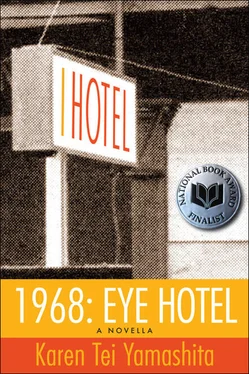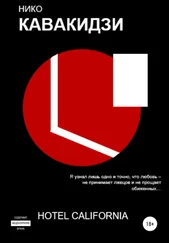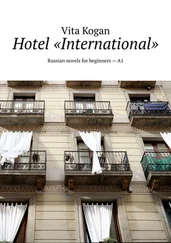The train is on its way to Canton, and from there, in the next few weeks, the group travels on to Peking, Nanking, and Shanghai. Before reaching Peking, walking through Tiananmen Square and the Forbidden City and the requisite trip to the Great Wall, they make an important stop at the Tachai Commune in Shansi Province.
A three-hour documentary about Tachai describes the struggles of the Tachai Production Brigade to resolutely implement Chairman Mao’s revolutionary line. Tachai is a poverty-stricken village built against a steep mountain where the people live in caves. The soil is eroded and washed out from gullies on Tiger Head Mountain, but with their bare hands, the peasants of Tachai move the soil and rock from the ridges and fill the gullies to create terraced fields. They build twenty reservoirs and dams, fertilize the soil, dig wells, and build new houses. The peasants literally move mountains to create a productive agricultural community that boasts of contributing seventy percent of their crops to the country while keeping thirty percent for their own needs. Now corn and millet grow in the terraced fields. There are hundreds of acres of conifers, nut and fruit orchards, and they have electricity and machinery as well. They raise pigs and start a noodle factory. They also build a school and a health clinic. Chairman Mao says, “In agriculture, learn from Tachai.” Thousands of people visit Tachai every day from far places in the country to learn from their heroic example.
The sister-comrades in the Chinese American group ask to meet the sister-comrades of Tachai. Lee goes along as the interpreter.
This is a warm and excited meeting, the conversation going back and forth in a lively exchange.
“What is it like to be women in America?”
“We Chinese American women have to fight the oppression of both American society and the old Chinese patriarchal society.” A discussion continues for a bit about the patriarchy. Chairman Mao says that men are oppressed by three systems of authority: political, clan, and religious. Women, however, are further dominated by a fourth authority: their husbands.
A Tachai sister says, “Chinese women fought in the war for liberation. Some fought with guns and others with their labor. The war may be over, but the revolution continues. So we continue to prove our strength here in the fields.”
Then a Chinese American sister asks, “What do you think about your relationships with men? We struggle with the attitudes of men who we feel must share the work of the household.”
The Tachai sister answers, “It is the same here, but women must be strong enough to do both—to work and fight like men and to take care of the household and the children.”
The Chinese American sister replies, “If we are to change our position in society, men as well as women must change. Men must also care for children and cook. It is reactionary to think that women must be superwomen and do everything.”
When Lee translates the sister’s response, there is a confused murmur among the Tachai sisters. One sister rises in some distress; then all of the Tachai sisters follow her out of the room.
“What happened?” The Chinese American sisters look at Lee for an answer. “Where did they go?”
Lee shrinks down in his chair and shakes his head.
After a while, one woman returns with a tray of tea and nervously passes the cups around.
The sisters say to Lee, “Ask her where they went. Why don’t they join us for tea?”
Lee translates, but the woman only smiles.
“That’s so weird.”
“Is it something I said?”
Lee nods. “I think so.”
One of the guides assigned to the group walks in quickly and speaks with Lee. Lee nods and turns to the sisters. “He says that they said you called their thinking reactionary.”
“Right.”
“You can’t say that!” Lee jumps up, tipping over his tea.
“Oops.”
“He’s right. Haven’t you figured it out? Being reactionary is like being an imperialist capitalist pig.”
“What did Mao say? All reactionaries are paper tigers.”
“What does that have to do with anything? You insulted her.”
“Oh, shit.”
After about an hour, the Chinese American sisters find a way to apologize and to get the Tachai sisters back into the room.
Lee translates, choosing his words carefully. “There has been a misinterpretation. What we meant to say was that in a historical context, women in China have advanced to a stage in which they are still proving their strength, and this is also the case for us in America, but in comparison we have also reached another stage, in which our men must share the burden of the household. This we see as a progression similar to the stages that lead from capitalism to socialism to communism.”
The Chinese American sisters look anxiously at the Tachai sisters, who break into smiles of relief.
“Yes, now it’s clear. An unfortunate misinterpretation.”
“Good job, Edmund.”
While Lee is busy interpreting, his teacher Chen is in Peking, housed at the Overseas Chinese Hotel and waiting anxiously to see, after an absence of twenty-five years, his old teacher and mentor.
As soon as Chen hears the hesitant knock at his door, he springs forward excitedly. The elderly man standing in the doorway of his hotel room chuckles to see his student, now a middle-aged man. Even after so many years, the gracious formalities of greeting each other seem improbable, and Chen finds himself speechless. As if to save Chen from any unseemly emotional outburst, the old teacher smiles and simply nods, “So it is you,” and walks into the room.
“I’ve been here for many weeks, but the process to see you has been complicated and very slow. You are the first person I asked to see,” Chen complains.
“I have been in the countryside,” says the old teacher. In fact, Chen’s persistence must have called the old man back from the country. But it is just as well. Even though the old teacher volunteers to go, he is much too old to be useful, and the mud and damp in the winters are hard on his old bones and bad for his rheumatism. He volunteers to go in order to be closer to his wife, who is sent there to teach. Fortunately she finds a small compound for the two of them, and his duties are light.
“Where in the countryside? I should have come to visit you.”
“Not too far from my own village in Hunan.”
“Then you had an opportunity to write again?” Chen remembers that his teacher was known for his stories about village life in Hunan.
“I have not written in many years.”
The old teacher is a well-known and celebrated writer during the days before the liberation. Chen studies his work along with other writers of this generation. They are men and women who are infused with the spirit of the May 4 movement, and urged to write a new Chinese literature that reflects the reality and future aspirations for a new China. Inspired to do their part for the revolution, they congregate with artists and other writers in Yenan, the intellectual center of the Communist revolution. They come inspired by their fellow writer Lu Hsun’s Call to Arms. Chairman Mao calls Lu Hsun a great man of letters, a great thinker, and a great revolutionary. The work of revolutionary writers is a heady time in Yenan in those days.
Chen knows that his teacher no longer writes, but he still hopes. He goes out daily to the bazaars in Peking, standing in line at the China Books counter where books are sold cheaply and by the thousands. He buys books of every sort, but can never find any of his old teacher’s, nor of any of his colleagues’ of those early days.
The old teacher looks around the room and notices the piles of the small five-by-seven-inch books stacked everywhere.
Читать дальше












